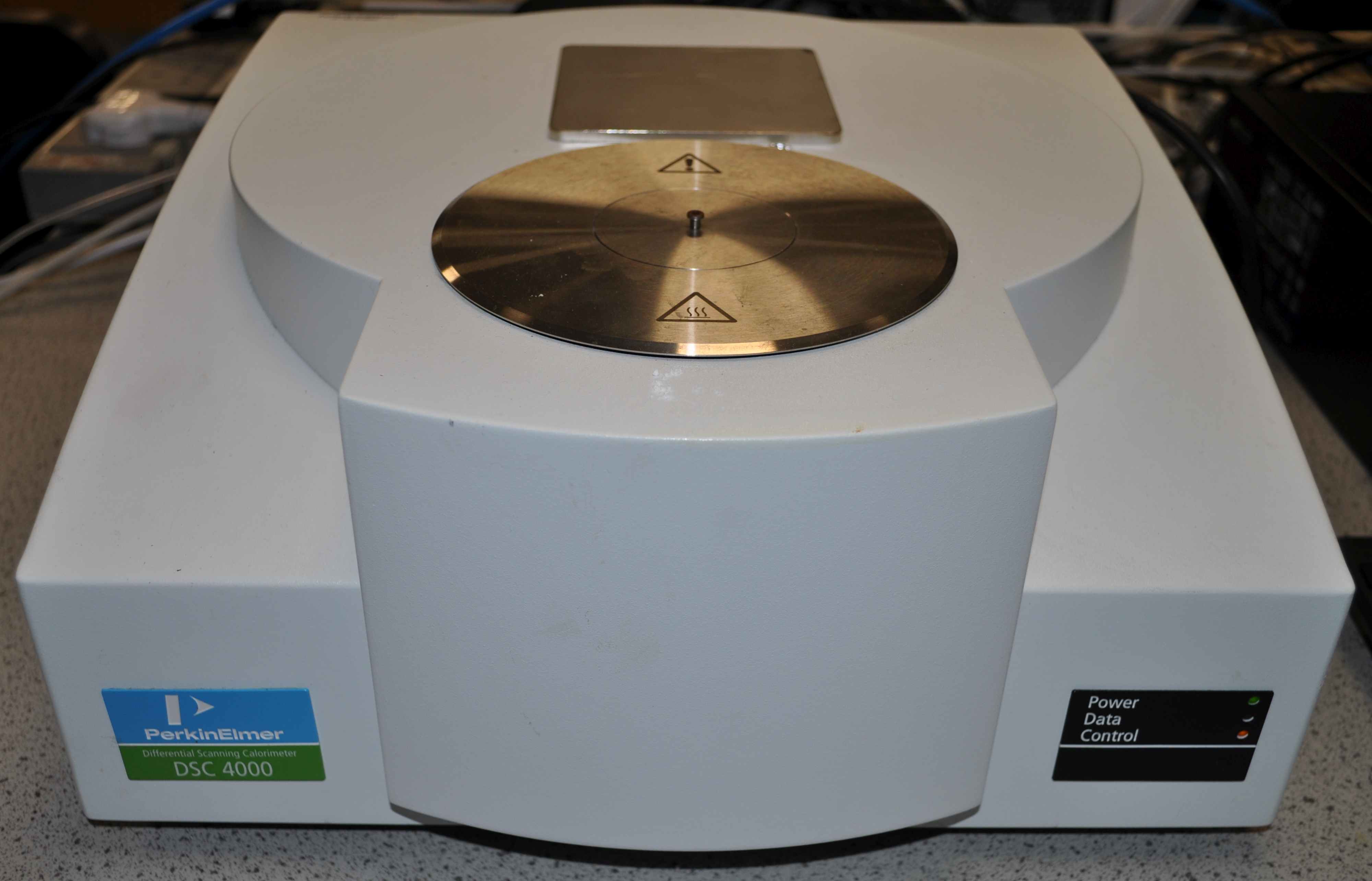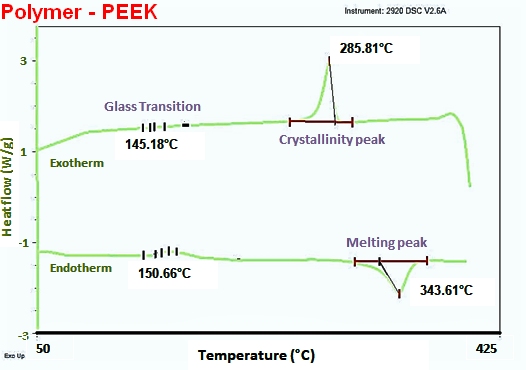DSC - Differential Scanning Calorimetry
 Differential Scanning Calorimetry DSC is used in a variety of industries to characterise various materials such as plastics, rubbers, resins or other organic materials as well as glass fibre and carbon fibre composites, powders, pharmaceuticals or liquids.
Differential Scanning Calorimetry DSC is used in a variety of industries to characterise various materials such as plastics, rubbers, resins or other organic materials as well as glass fibre and carbon fibre composites, powders, pharmaceuticals or liquids.
Any change that alters the heat flow in and out of a sample can be detected by the DSC over a temperature range of -100degC to +450degC in the Perkin Elmer DSC4000 with liquid nitrogen cooling capabilities at the laboratory.
Applications of DSC include:-
- Polymer characterisation, glass transition temperature Tg and softening temperature measurement in plastics such as PEEK and PET.
- Measurement of crystallisation and melting temperatures plus percentage crystallinity using latent heat of melting in crystalline and semicrystalline polymers.
- Assessing the thermal history of polymers from the moulding manufacturing process conditions. These can affect the crystallinity in crystalline and semi-crystalline polymers impacting physical mechanical properties, post moulding cracking and environmental stress cracking ESC.
- Determination of ideal manufacturing and moulding temperatures for polymers based on their thermal stability.
- Quality control tests to ensure products meet material specifications.
- Evaluation of the thermal stability of a product to determine temperatures for manufacture, functional operation and storage based on oxidative stability including for pharmaceuticals.
- Monitoring the effects of pH, ion concentration and additives on the thermal characteristics of proteins.
- Identifying differences in crystalline forms of pharmaceuticals that arise due to refinement or milling.
- Characterisation of shape memory alloys by measuring thermoelastic martensite transformation and reverse transformation.
- Accurate measurement of melting point including how it is affected by composition ratios in copolymers, compounds and alloys.
- DSC analysis and screening to assess residual stress in polymers from manufacturing moulding process using thermal signatures of stress relief to avoid enhanced solvent induced ESC.
- Calculating melting, crystallisation, transformation and reaction enthalpies and temperatures of polymers and amorphous metal alloys.
 Studying the impact of molecular weight, plasticisers, additives or softeners on glass transition and softening temperature of polymers and plastics.
Studying the impact of molecular weight, plasticisers, additives or softeners on glass transition and softening temperature of polymers and plastics.- Standard Oxidation Induction Time OIT to measure the level of thermal stabilisation of a material.
- Eutectic purity and heat capacity of substances.
- Evalauting the curing process and extent of curing in materials such as resins and adhesives.
- Effect of curing on the glass transition temperature which provides key information about the physical properties of the end product.
DSC is often used alongside the TGA to characterise rubbers, polymers and plastics.
The laboratory's DSC expert is Iola Main.

